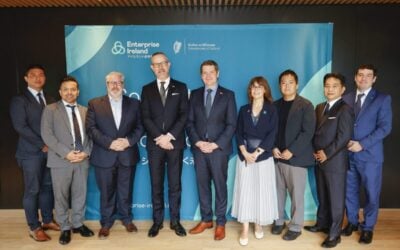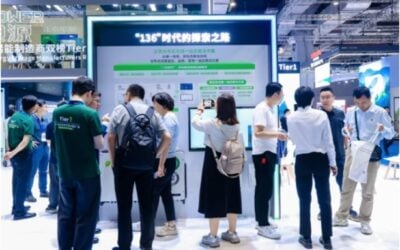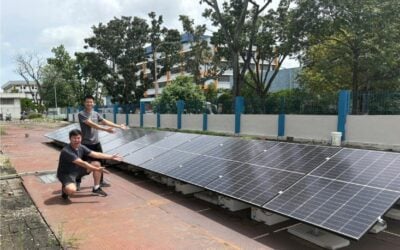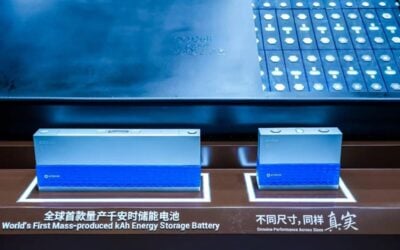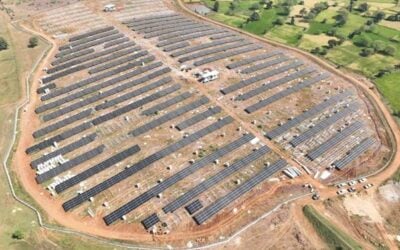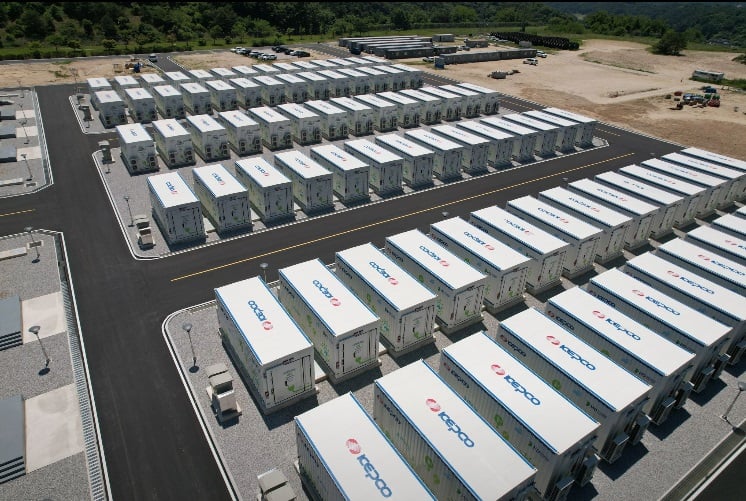
KEPCO, South Korea’s biggest electric utility, has welcomed the start of commercial operations at a portfolio of large-scale battery energy storage system (BESS) assets.
Korean Electric Power Corporation (KEPCO) said last week (26 September) that a completion ceremony was held for what it claimed is Asia’s biggest project featuring grid-stabilising batteries.
Enjoy 12 months of exclusive analysis
- Regular insight and analysis of the industry’s biggest developments
- In-depth interviews with the industry’s leading figures
- Annual digital subscription to the PV Tech Power journal
- Discounts on Solar Media’s portfolio of events, in-person and virtual
The event was held at Bubuk substation, the connection point for the final project to be completed in a portfolio comprising BESS installations at five KEPCO substations.
The short-duration energy storage assets total 889MWh of energy storage capacity with power conversion systems (PCS) enabling 978MW power output to the grid.
The utility said the systems will enable it to manage up to a gigawatt of power generation constraints caused by ongoing power grid construction work. After that work is finished, the systems will instead deliver frequency regulation ancillary services to help manage the day-to-day operation of the grid.
KEPCO said that by utilising its existing substation infrastructure, project costs were able to be kept low. This also minimised the level of complaints from the public regarding their construction, which the utility said helped the projects to be built more quickly.
According to a June 2022 report by Electronic Times (ET News), an information technology media outlet based in South Korea, KEPCO announced its plan to tender contracts to build the five BESS installations, selecting bidders by October of that year.
ET News said it marked the utility’s first bulk procurement of battery storage in five years since the Korean market was put on pause by a series of fires at mostly commercial and industrial (C&I) facilities during 2017-2018.
The original plan had been to put the sites into operation by mid-2023, after selecting bidders based on technical and financial considerations, with more weighting given to lower cost bids.
However, the ET News report quoted an unnamed industry source as being concerned by the profitability of delivering projects during the spike in costs driven by raw material prices seen at the time of the report.
As regular Energy-Storage.news readers will know, the raw material and logistics-related price spikes began in late 2021 and ended in early 2023.
According to KEPCO’s 26 September 2024 announcement, the total invested in the project was around KRW830 billion (US$627.57 million). In total, 14 companies were involved, including HD Hyundai Electric, Hyosung Heavy Industries, LS Electric, Samsung SDI, LG Energy Solution, and others.
HD Hyundai Electric announced the completion and start of operation of its 336MW BESS for the utility a couple of months ago. HD Hyundai Electric provided key technologies for the system, in Namwon, Jeollabuk-do, including PCS, energy management system (EMS) and battery management system (BMS), as well as handling design, construction and procurement.
Battery manufacturer LG Energy Solution also participated in that system’s construction and HD Hyundai Electric noted that it was completed within a year and four months of receiving the order from KEPCO.

